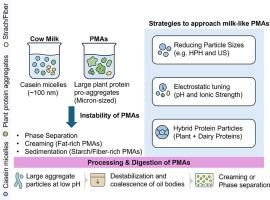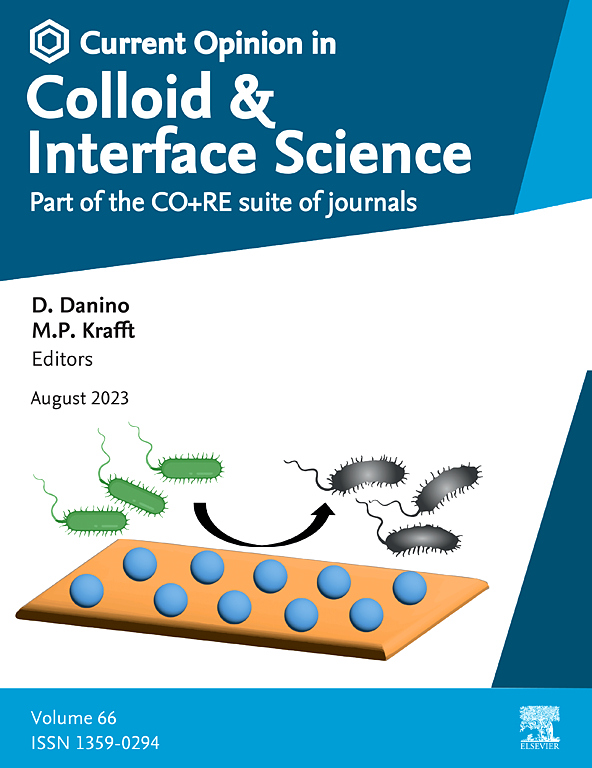牛奶和植物基牛奶替代品的胶体特性:结构视角
IF 7
2区 化学
Q1 CHEMISTRY, PHYSICAL
Current Opinion in Colloid & Interface Science
Pub Date : 2025-09-19
DOI:10.1016/j.cocis.2025.101966
引用次数: 0
摘要
植物性牛奶替代品(pma)比牛奶营养更少,更难以标准化。它们的低胶体稳定性是阻碍通过增加蛋白质和脂质等成分来提高其营养价值的主要挑战之一。这种特性经常导致不希望出现的现象,如相分离、沉淀和乳化,所有这些都会影响产品的可接受性、制造过程,甚至可消化性。本文概述了牛奶和pma中蛋白质颗粒和脂肪球/油滴的胶体性质和结构特征,重点介绍了它们在加工和消化过程中的行为差异。它还提出了策略,以制定具有胶体性质的pma,更接近于那些牛奶,特别是在稳定性方面的加工条件。最后,本文提出使用含有植物蛋白和牛奶蛋白组合的杂交蛋白颗粒来改善PMA特性,该颗粒具有独特的结构特征,改进的功能特性和不同的消化行为。本文章由计算机程序翻译,如有差异,请以英文原文为准。

Colloidal properties of milk and plant-based milk alternatives: A structural perspective
Plant-based milk alternatives (PMAs) are less nutritious and more difficult to standardise than dairy milk. Their low colloidal stability is one of the major challenges hindering efforts to enhance their nutritional value by increasing components such as protein and lipids. This property often leads to undesirable phenomena such as phase separation, sedimentation, and creaming, all of which affect product acceptability, manufacturing processes, and even digestibility. This article outlines the colloidal properties and structural characteristics of protein particles and fat globules/oil droplets in both cow milk and PMAs, highlighting the differences in their behaviours during processing and digestion. It also presents strategies to formulate PMAs with colloidal properties that more closely resemble those of cow milk, particularly in terms of stability under processing conditions. Finally, it proposes the use of hybrid protein particles containing a combination of plant and milk proteins, which exhibit unique structural features, improved functional properties, and distinct digestion behaviours, to improve PMA characteristics.
求助全文
通过发布文献求助,成功后即可免费获取论文全文。
去求助
来源期刊
CiteScore
16.50
自引率
1.10%
发文量
74
审稿时长
11.3 weeks
期刊介绍:
Current Opinion in Colloid and Interface Science (COCIS) is an international journal that focuses on the molecular and nanoscopic aspects of colloidal systems and interfaces in various scientific and technological fields. These include materials science, biologically-relevant systems, energy and environmental technologies, and industrial applications.
Unlike primary journals, COCIS primarily serves as a guide for researchers, helping them navigate through the vast landscape of recently published literature. It critically analyzes the state of the art, identifies bottlenecks and unsolved issues, and proposes future developments.
Moreover, COCIS emphasizes certain areas and papers that are considered particularly interesting and significant by the Editors and Section Editors. Its goal is to provide valuable insights and updates to the research community in these specialized areas.

 求助内容:
求助内容: 应助结果提醒方式:
应助结果提醒方式:


